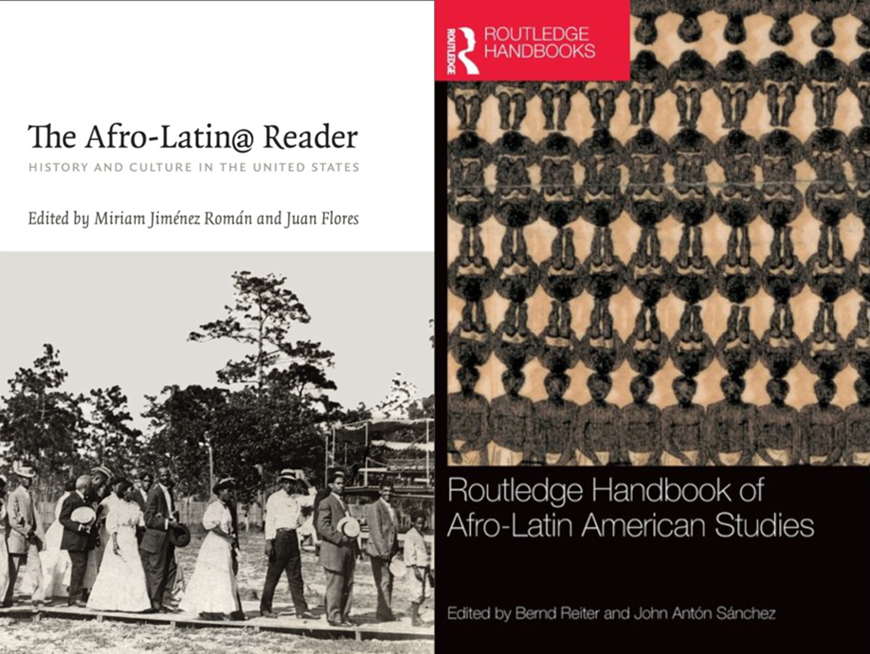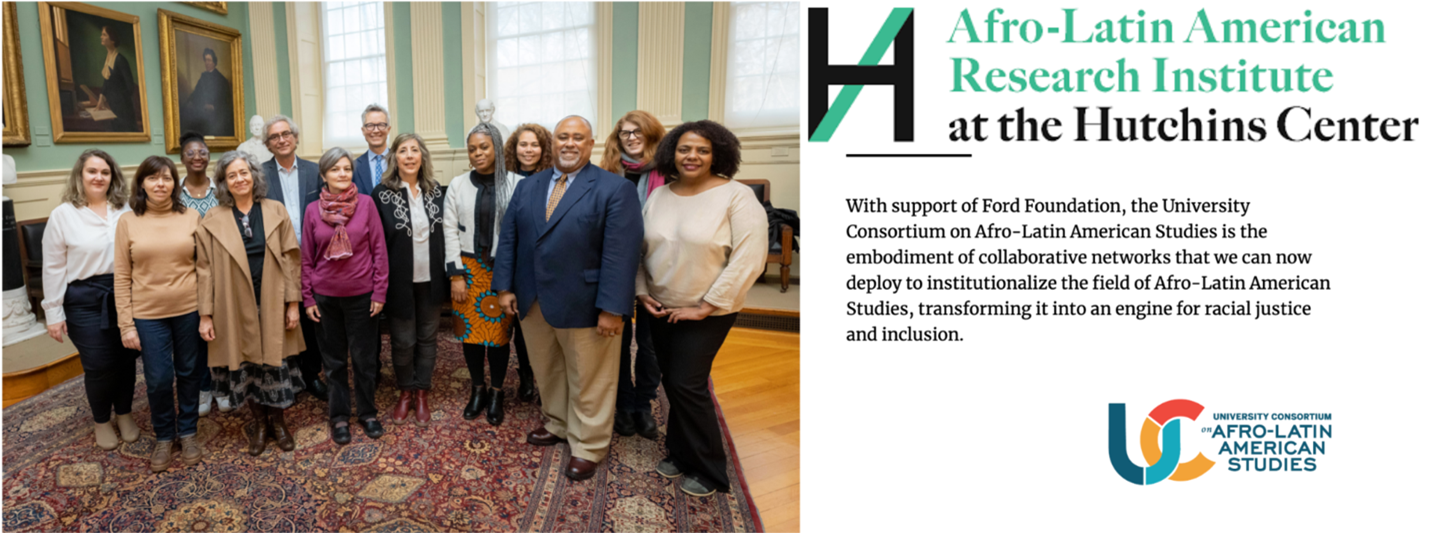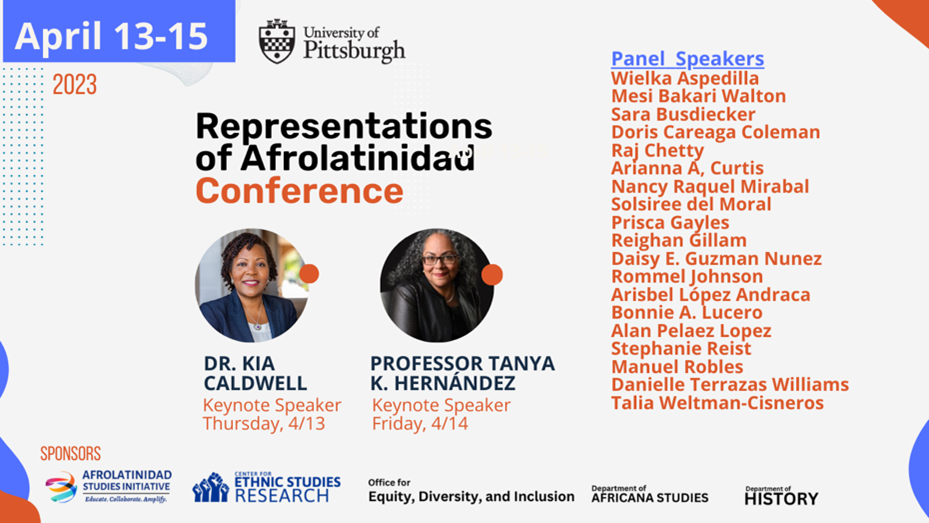Afro-Latin American and Afro-Latinx Studies: The Consolidation of a Field
Juneteenth, as an institutionalized national holiday, continues to serve the greater purpose of expanding our knowledge about the Black experience in America, and provides an opportunity to learn more about the Afro-Latino experience. As we honor and observe Juneteenth this year, UnidosUS would like to highlight the efforts that have been made by research and academic institutions in building and collecting scholarly knowledge about the intersection of the Black and Latino experiences, that of Afro-Latinos.
The body of knowledge about and by Afro-Latinos is vast and diverse. It is defined by its many intersections with the African American and Latino experiences, including its very specific singularities. This identity—with its historical and sociocultural complexities—is naturally woven by national and transnational perspectives that trace the presence of the African diaspora in the Americas from the period of the transatlantic slave trade to more recent migration movements within the continent. The consolidation of this knowledge as an academic field of study is becoming stronger with every passing year, and it will continue to broaden the conversation about identity, race, and ethnicity in the United States and across the Americas.

In recent years, the field of Afro-Latin American Studies has paved a path towards academic institutionalization in the United States, not only as an area of interest under “Latin American,” “African American,” or “American Studies,” but as a field of study in its own right. In 2010, the pioneering book The Afro-Latin@ Reader: History and Culture in the United States, edited by Miriam Jiménez Román and Juan Flores, puts forth a wealth of scholarship on Afro-Latinos in the United States in a single volume. The collection’s strength came from its use of an interdisciplinary lens to detail the experience of Afro-Latinos—both since the arrival of Spanish-speaking Africans in North America in the mid-sixteenth century (like Juan Garrido), as well as developments in the past fifty years broadening definitions of Blackness and Latinidad in our country.
A more recent collection, the Routledge Handbook of Afro-Latin American Studies, edited by Bernd Reiter and John Antón Sánchez, provides a “comprehensive roadmap” that “will not only serve as the major reference text in the area of Afro-Latin American Studies but will also provide the agenda for future new research.” Published in 2022, the book takes a transnational perspective on the continent, organizing articles in four distinctive sections (disciplinary studies, problem-focused fields, regional and country approaches, and pioneers of Afro-Latin American Studies) and analyzing how the struggle for freedom, abolition, and emancipation also holds true for the entire Americas.

Professor Alejandro De La Fuente at the Afro-Latin American Research Institute (ALARI) at Harvard’s Hutchins Center for African and African-American Research are engaged in leading efforts to build institutional capacity of the field. Last December, during the ALARI Second Conference on Afro-Latin American Studies, the Institute announced its partnership with five international institutions to establish the University Consortium on Afro-Latin American Studies. This collaborative network of research groups and academic institutions was made possible after receiving a $1.7 million grant from the Ford Foundation, and its purpose is to consolidate and institutionalize the field of Afro-Latin American Studies, “transforming it into an engine for racial justice and inclusion.”
The Afrolatinidad Studies Initiative (ASI) at the University of Pittsburgh is among other notable institutional efforts in the country. Under the leadership of Michelle Reid Vásquez—and through a series of webinars, podcasts, summer institutes, and events—the initiative seeks to “enhance and expand transnational, transregional, and interdisciplinary scholarly exchange, research, education, programming, and student development in Afro-Latin American and Afro-Latinx Studies.” Last April, the initiative hosted Representations of Afrolatinidad, a national conference that aims to reflect on the depictions of Afro-Latin American and Afro-Latinx communities.

Today’s Afro-Latin American and Afro-Latinx academic landscape also includes projects like the Afro-Latin American Studies Project at UNC Greensboro, graduate and undergraduate certificate programs offered by Florida International University, lecture and conversation series offered by universities like Northwestern, and courses on The Afro-Latin American experience at Rutgers, among others. California State University at San Bernardino is also preparing an exhibit through its Anthropology Museum on Afrolatine communities in California and Mexico. The exhibit supports Afrolatinizamos, a cohort of committed K-12 educators across the country who are developing open-source lesson plans “to infuse Afro-Latine and Afro-Latinx content into learning, at all grade levels, and across multiple subject areas.”
Even as Juneteenth celebrates the history of emancipation in the United States, may that date also be a reason to celebrate and learn about the Black experience of Afro-Latinos and their interconnected history with the entire African diaspora in the continent.
By: Viviana López Green
Senior Director, Racial Equity Initiative
RELATED CONTENT
Understanding the Significance of Juneteenth
Resources to Honor and Celebrate Juneteenth
A Mosaic Called Afro-Latinidad

